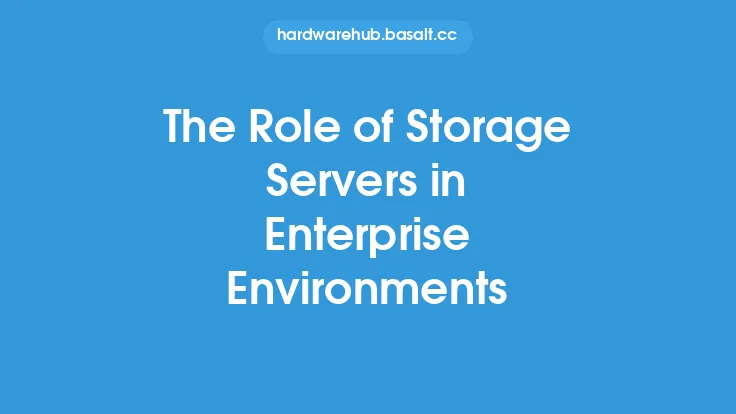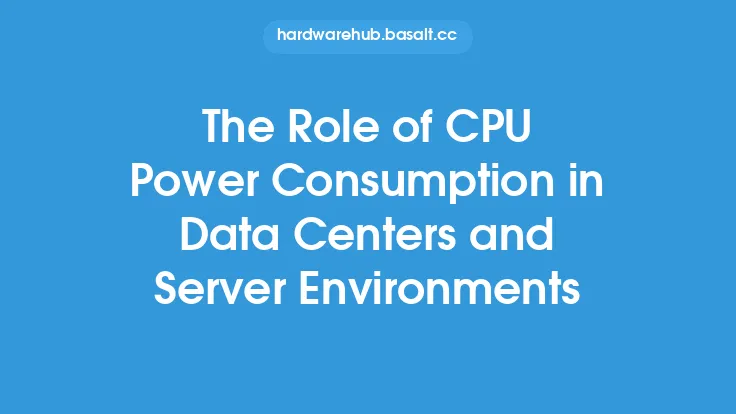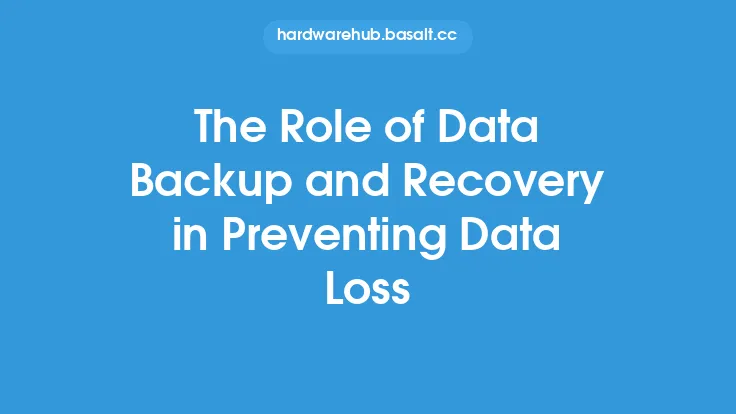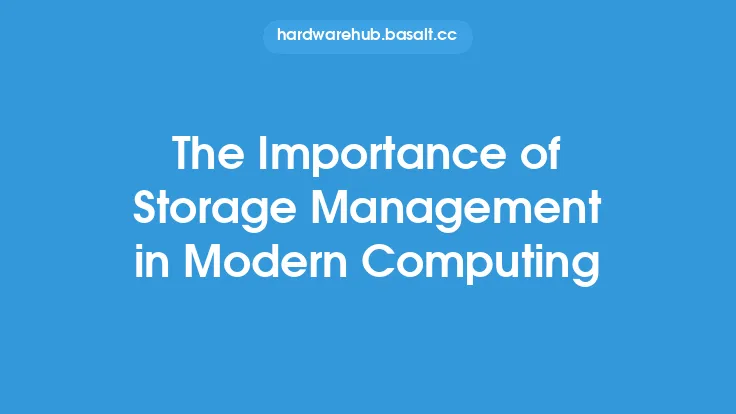In today's data-driven world, data centers play a critical role in storing, processing, and managing vast amounts of data. At the heart of data center operations lies storage management, a complex and multifaceted discipline that ensures the efficient, secure, and reliable storage of data. Storage management is responsible for overseeing the entire lifecycle of data, from creation to deletion, and involves a range of tasks, including data allocation, backup and recovery, archiving, and security.
Introduction to Storage Management
Storage management involves a range of technologies, processes, and policies that work together to ensure that data is stored, retrieved, and managed efficiently. This includes managing storage devices such as hard disk drives, solid-state drives, and tape drives, as well as storage systems such as storage area networks (SANs), network-attached storage (NAS), and cloud storage. Effective storage management is critical to ensuring that data is available when needed, that it is protected from unauthorized access or corruption, and that it is stored in a way that optimizes performance and reduces costs.
Key Components of Storage Management
There are several key components of storage management, including data allocation, data protection, data archiving, and data security. Data allocation involves assigning storage space to applications and users, and ensuring that data is stored on the most suitable storage device or system. Data protection involves ensuring that data is backed up regularly, and that it can be recovered quickly in the event of a disaster or data loss. Data archiving involves moving inactive data to a separate storage system, where it can be retained for long-term preservation and compliance purposes. Data security involves protecting data from unauthorized access, and ensuring that it is encrypted and compliant with relevant regulations.
Storage Management Technologies
A range of technologies are used in storage management, including storage virtualization, data deduplication, and compression. Storage virtualization involves abstracting storage resources from physical devices, and presenting them as a logical pool of storage. This allows storage administrators to manage storage resources more efficiently, and to allocate storage space to applications and users more flexibly. Data deduplication involves eliminating duplicate copies of data, and storing only a single copy of each piece of data. This reduces storage capacity requirements, and improves data transfer times. Compression involves reducing the size of data, making it easier to store and transfer.
Storage Management Processes
Effective storage management involves a range of processes, including capacity planning, performance monitoring, and troubleshooting. Capacity planning involves forecasting storage capacity requirements, and ensuring that sufficient storage space is available to meet business needs. Performance monitoring involves tracking storage system performance, and identifying bottlenecks and areas for improvement. Troubleshooting involves identifying and resolving storage-related issues, such as data corruption or storage system failures.
Benefits of Effective Storage Management
Effective storage management offers a range of benefits, including improved data availability, reduced storage costs, and enhanced data security. By ensuring that data is stored efficiently and securely, organizations can minimize the risk of data loss or corruption, and ensure that data is available when needed. Effective storage management can also help organizations to reduce storage costs, by optimizing storage capacity utilization and minimizing waste. Additionally, effective storage management can help organizations to enhance data security, by protecting data from unauthorized access and ensuring that it is compliant with relevant regulations.
Challenges of Storage Management
Despite the importance of storage management, there are several challenges that organizations face in managing their storage resources effectively. These include the rapid growth of data, the increasing complexity of storage systems, and the need to ensure data security and compliance. The rapid growth of data is driving demand for storage capacity, and making it challenging for organizations to keep pace with storage needs. The increasing complexity of storage systems is making it harder for organizations to manage their storage resources effectively, and to ensure that data is stored efficiently and securely. The need to ensure data security and compliance is also a major challenge, as organizations must protect data from unauthorized access and ensure that it is compliant with relevant regulations.
Best Practices for Storage Management
To overcome the challenges of storage management, organizations should adopt a range of best practices, including developing a comprehensive storage strategy, implementing a storage management system, and providing training and support to storage administrators. A comprehensive storage strategy should take into account business needs, storage capacity requirements, and data security and compliance requirements. A storage management system should provide a centralized platform for managing storage resources, and should include features such as storage virtualization, data deduplication, and compression. Providing training and support to storage administrators is also critical, as it ensures that they have the skills and knowledge needed to manage storage resources effectively.
Conclusion
In conclusion, storage management plays a critical role in data center operations, and is essential for ensuring the efficient, secure, and reliable storage of data. By understanding the key components of storage management, including data allocation, data protection, data archiving, and data security, organizations can develop effective storage management strategies that meet their business needs. By adopting best practices such as developing a comprehensive storage strategy, implementing a storage management system, and providing training and support to storage administrators, organizations can overcome the challenges of storage management and ensure that their data is stored efficiently, securely, and reliably.





